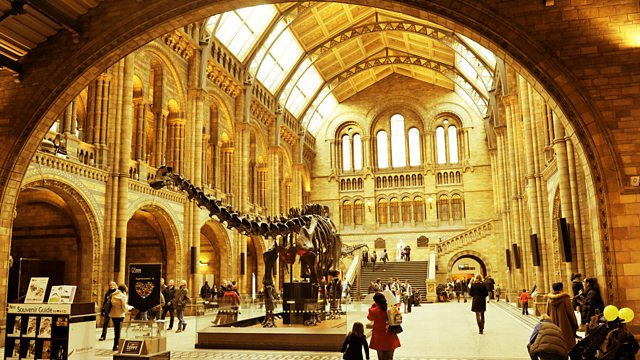Franz Baron Nopcsa von Felso-Szilvás
Paul Barrett explores the life of 20th-century palaeontologist, Franz Baron Nopcsa von Felso-Szilvás. From October 2015.
Franz Baron Nopcsa von Felso-Szilvás was among the first people to think about what fossils can tell us about how extinct animals lived – rather than just giving them a name Nopcsa is therefore considered the father of palaeo-biology. Nopcsa described the first fossil evidence that the Sauropods had gone through a process of island dwarfism – shrinking body size over generations to adapt to living on islands.
Nopcsa was a flamboyant character and was unafraid to make his more wacky and outlandish theories public and was also one of very few openly gay men in the early part of the 20th century.
Paul Barrett, dinosaur research at the Natural History Museum, explains why Nopsca is his Natural History Hero.
Produced by Ellie Sans
First broadcast on ±«Óãtv Radio 4 in October 2015.
Last on
More episodes
Previous
Next
Professor Paul Barrett

His main areas of interest are in , describing new dinosaurs, and in large-scale evolutionary processes, such as the coevolution of animals and plants through time.
During the course of this work, he has travelled extensively to work on museum collections around the world and conducted fieldwork in China, the UK and South Africa. He is currently President of the , holds numerous editorial positions and sits on the councils and committees of several learned societies.
°Õ·É¾±³Ù³Ù±ð°ù:Ìý
Franz Nopsca

The young Nopsca established that the bones were those of a dinosaur but realised that they were unusually small. The conclusion he reached as to why had a profound impact on our understanding of how habitat impacted dinosaurs.
Broadcasts
- Mon 5 Oct 2015 13:45±«Óãtv Radio 4
- Tue 6 Sep 2016 09:30±«Óãtv Radio 4
- Mon 11 Nov 2019 14:15±«Óãtv Radio 4 Extra
- Tue 12 Nov 2019 02:15±«Óãtv Radio 4 Extra
5 scientists who changed the way we see nature
The Natural History Heroes who inspired today's experts.
Natural Histories
Brett Westwood explores nature's profound impact on human culture and society.
Download Natural History Heroes
Subscribe to the free Natural Histories podcast.

